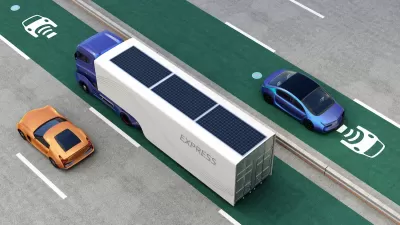Los Angeles Mayor Antonio Villaraigosa's plan to cram 30 years of transit projects into one decade is gathering steam in Washington -- and other cities are watching closely.
"The Mayor has argued his case persuasively, emphasizing the project's environmental and economic significance along with its mobility and livability benefits for Angelenos. The transit expansion itself, even if not accelerated, has much to recommend it: 200 million fewer driving miles annually, 570,000 fewer pounds of emissions annually, and 80 million more transit trips each year. If accelerated, the plan would create 170,000 construction jobs over ten years, contributing to the economic recovery of a county with almost 600,000 unemployed workers. Additionally, 30/10 would save $3.8 billion by avoiding cost inflation already calculated into the transportation plan's price tag while steering clear of the nasty parochial disputes that can derail a project when a transit system is expanded in piecemeal fashion. Finally, the Los Angeles County Economic Development Corporation estimates that the non-accelerated transit expansion would increase federal tax revenue by $2 billion, state tax revenue by $800 million, and local government revenue by $60 million over 30 years. An accelerated plan would likely have a similar fiscal impact but more quickly, providing revenue at a time when cash-strapped governments are starved for resources."
One of the most important elements of this plan is that is proposes to be revenue-neutral for the federal government.
FULL STORY: L.A. Gets Moving on Transit

Manufactured Crisis: Losing the Nation’s Largest Source of Unsubsidized Affordable Housing
Manufactured housing communities have long been an affordable housing option for millions of people living in the U.S., but that affordability is disappearing rapidly. How did we get here?

Americans May Be Stuck — But Why?
Americans are moving a lot less than they once did, and that is a problem. While Yoni Applebaum, in his highly-publicized article Stuck, gets the reasons badly wrong, it's still important to ask: why are we moving so much less than before?

Using Old Oil and Gas Wells for Green Energy Storage
Penn State researchers have found that repurposing abandoned oil and gas wells for geothermal-assisted compressed-air energy storage can boost efficiency, reduce environmental risks, and support clean energy and job transitions.

Minneapolis Bans Rent-Setting Software
Four cities have enacted restrictions on algorithmic software that can inflate rent costs.

Oakland to Add 244 New EV Chargers
Oakland plans to launch its new charging network at eight locations by the end of 2025.

Jane Goodall Inspires with Message of Hope, Resilience, and Environmental Action
Speaking in Pasadena, Jane Goodall offered a hopeful and inspirational message, urging global compassion, environmental responsibility, and the power of individual action to shape a better future.
Urban Design for Planners 1: Software Tools
This six-course series explores essential urban design concepts using open source software and equips planners with the tools they need to participate fully in the urban design process.
Planning for Universal Design
Learn the tools for implementing Universal Design in planning regulations.
Heyer Gruel & Associates PA
City of Moreno Valley
Institute for Housing and Urban Development Studies (IHS)
City of Grandview
Harvard GSD Executive Education
Salt Lake City
NYU Wagner Graduate School of Public Service
City of Cambridge, Maryland




























